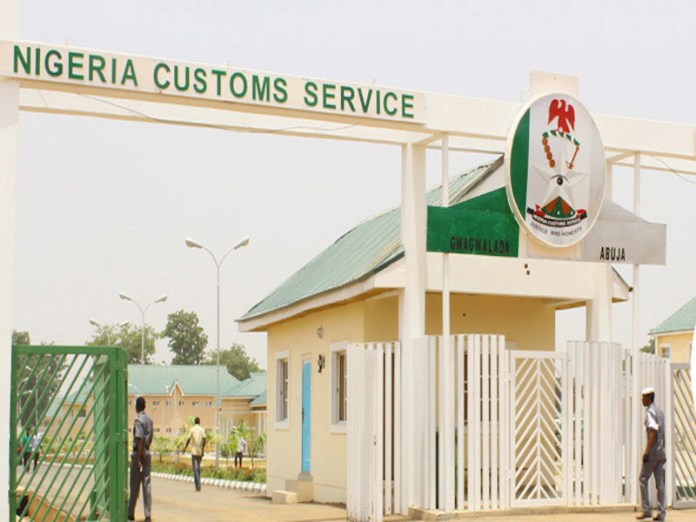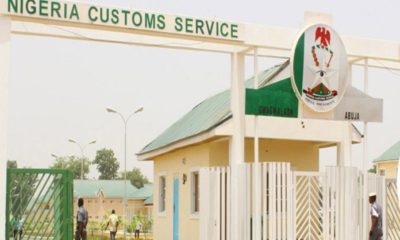- Customs Intercept Indian Hemp Worth N379.2m
The Nigeria Customs Service, Federal Operations Unit, Zone A, Ikeja, has disclosed that it seized 3792 kilogramme of cannabis (Indian Hemp) worth N379.2m.
While announcing the seizure to journalists in Lagos on Tuesday, the Controller of the zone, Mohammed Aliyu, said it was the largest consignment of cannabis ever seized in the history of the FOU Ikeja.
He added that between August 17 and December 10, 2018, the Command recorded a total seizure worth N5.1bn.
Other items seized in addition to the Indian hemp, within the period under review, according to Aliyu, included 58 used vehicles popularly known as Tokunbo, 39,664 bags of foreign parboiled rice (equivalent of 66 trailers), 3,252 frozen poultry products, 2,887 jerry cans of vegetable oil, 5x20ft containers of unprocessed wood, 2,520 bales of used clothing and 710 cartons of tramadol.
Lamenting the dire consequences of illicit substance intercepted by officers and men of the Nigeria Customs Service, Aliyu said no one knew the potential victims that might use the dangerous substances as they could be any member of a Nigerian family.
He said the men of the NCS made sacrifices to combat the menace of the illicit substances.
Aliyu noted that fighting the menace of drug abuse was fighting for the future of endangered youths and any would-be user of the illicit substance.
“As an enforcement unit of the service, the FOU will not rest on its oars until there is a total compliance that will translate to effective revenue generation, suppression of smuggling, facilitation of legitimate trade and protection of our national security.
“We are determined to stem the tide of those who have decided to be non-conformists to legitimate process of importation and exportation clearance processes.”
Speaking further, the FOU Controller said that the desire to complement the Comptroller- General of Customs, Col. Hameed Ali’s, (retd) policy of entrenching transparency and integrity was the determining factor for his uncompromising stance on smuggling.
He stated that FOU was the head of the second layer of defence in enforcing the role of the service and complementing the activities of the area commands.
The Customs helmsman said the unit intended to accomplish the enforcement of the Federal Government’s policy across the border commands.
According to him, the proactive steps of enforcement are truly achieving the desired result in sustaining agriculture and self-sufficiency in food production, revamping the economy, protecting national security and ameliorating the potential health hazards of the negative impact of smuggled items on Nigerians.

 Forex3 weeks ago
Forex3 weeks ago
 Naira3 weeks ago
Naira3 weeks ago
 Billionaire Watch2 weeks ago
Billionaire Watch2 weeks ago


 Naira3 weeks ago
Naira3 weeks ago




 Naira2 weeks ago
Naira2 weeks ago




 Naira1 week ago
Naira1 week ago




 Naira4 weeks ago
Naira4 weeks ago
 Banking Sector4 weeks ago
Banking Sector4 weeks ago
















